Plenary Panel: Reflecting on 50 Years of Computing Research, and Future Outlook
The conferences at FCRC represent areas that have laid the foundation for computing. As part of its 50th anniversary celebration, the Computing Research Association (CRA) is organizing this panel to reflect on the contributions of the field by the communities represented by these conferences. The panelists will discuss global computing research and its impact, digging into the evolution of programming languages, computer architecture, parallel and distributed computing, theory, and AI. We will consider how technological advances and external forces -- such as industry and government organizations — shaped this evolution. Given a present where computing is transforming every industry and every facet of daily life, it is a good time to recall the critical steps that brought the field to this point. The panelists will share perspectives on the future by considering what has been learned from computing’s past.
The Panelists:
Hagit Attiya, Technion
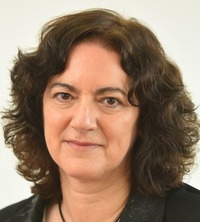
Hagit Attiya is a professor at the department of Computer Science at the Technion, Israel Institute of Technology, and holds the Harry W. Labov and Charlotte Ullman Labov Academic Chair. She is the editor-in-chief of Springer's journal Distributed Computing. She won the Dijkstra award in Distributed Computing 2011 and is a fellow of the ACM.
Jack Dongarra, University of Tennessee at Knoxville
2021 Turing Award Winner
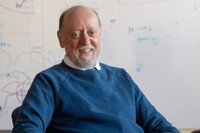
Jack Dongarra specializes in numerical algorithms in linear algebra, parallel computing, the use of advanced computer architectures, programming methodology, and tools for parallel computers. He holds appointments at the University of Manchester, Oak Ridge National Laboratory, and the University of Tennessee, where he founded the Innovative Computing Laboratory. In 2019 he received the ACM/SIAM Computational Science and Engineering Prize. In 2020 he received the IEEE-CS Computer Pioneer Award. He is a Fellow of the AAAS, ACM, IEEE, and SIAM; a foreign member of the British Royal Society and a member of the US National Academy of Engineering. Most recently, he received the 2021 ACM A.M. Turing Award for his pioneering contributions to numerical algorithms and software that have driven decades of extraordinary progress in computing performance and applications.
Mary Hall
Director of Kahlert School of Computing at University of Utah
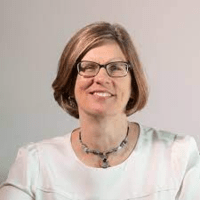
Mary Hall is a Professor and Director of the School of Computing at University of Utah. She received a PhD in Computer Science from Rice University. Her research focus brings together compiler optimizations targeting current and future high-performance architectures on real-world applications. Hall’s prior work has developed compiler techniques for exploiting parallelism and locality on a diversity of architectures: automatic parallelization for SMPs, superword-level parallelism for multimedia extensions, processing-in-memory architectures, FPGAs and more recently many-core CPUs and GPUs. Professor Hall is an IEEE Fellow, an ACM Distinguished Scientist and a member of the Computing Research Association Board of Directors. She actively participates in mentoring and outreach programs to encourage the participation of women and other groups underrepresented in computer science.
Lizy Kurian John, The University of Texas at Austin
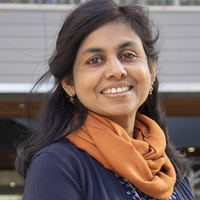
Dr. Lizy Kurian John holds the Truchard Foundation Chair in Engineering in the Department of Electrical & Computer Engineering at the University of Texas at Austin. Her research is in the areas of computer architecture, multicore processors, memory systems, performance evaluation and benchmarking, workload characterization, and fpgas. Prof. John's research has been supported by the National Science Foundation, Semiconductor Research Consortium (SRC), DARPA, META, Lockheed Martin, AMD, ARM, Oracle, Huawei, IBM, INTEL, Motorola, Freescale, Dell, Samsung, Texas Instruments, etc. She is recipient of NSF CAREER award, UT Austin Engineering Foundation Faculty Award, Halliburton, Brown and Root Engineering Foundation Young Faculty Award, University of Texas Alumni Association Teaching Award, The Pennsylvania State University Outstanding Engineering Alumnus Award, etc. Lizy john holds 15 U. S. Patents and has published four books, 16 book chapters, 300+ refereed journal and conference publications, and more than 50 workshop papers. Prof. John is the Editor-in-Chief of IEEE Micro, and has served in the editorial boards of many IEEE and ACM journals. She is an IEEE Fellow, ACM Fellow, and Fellow of the National Academy of Inventors.
Huan Liu, Arizona State University
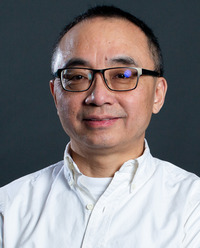
Dr. Huan Liu is a Regents Professor and Ira A. Fulton professor of Computer Science and Engineering at Arizona State University. He is the recipient of the ACM SIGKDD 2022 Innovation Award for his outstanding contributions to the foundation, principles, and applications of social media mining and feature selection for data Mining. At ASU, he was recognized for excellence in teaching and research in Computer Science and Engineering. He co-authored the textbook, Social Media Mining: An Introduction, Cambridge University Press. He is Editor in Chief of ACM TIST, Founding Field Chief Editor of Frontiers in Big Data, its Specialty Chief Editor of Data Mining and Management, and a founding organizer of the International Conference Series on Social Computing, Behavioral-Cultural Modeling, and Prediction. He is a Fellow of ACM, AAAI, AAAS, and IEEE.
Guy L. Steele Jr., Oracle Labs
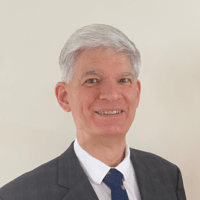
Guy L. Steele Jr. (A.B., 1975, Harvard College; S.M., 1977, and Ph.D., 1980, MIT) is a Software Architect at Oracle Labs. He has taught at Carnegie-Mellon University, and worked for Tartan Laboratories, Thinking Machines Corporation, and Sun Microsystems. He is author or co-author of five books: Common Lisp: The Language, C: A Reference Manual, The Hacker’s Dictionary, The High Performance Fortran Handbook, and The Java Language Specification. In 1975, he and Gerald Jay Sussman created the Scheme language (much improved by many others since then). He has served on accredited standards committees X3J11 (C language) and X3J3 (Fortran), and served as chairman of X3J13 (Common Lisp). At Thinking Machines Corporation he co-developed the languages Connection Machine Lisp, C*, and Connection Machine Fortran. He is an ACM Fellow (and member since 1971), IEEE Fellow, Fellow of the American Academy of Arts and Sciences, and a Member of the National Academy of Engineering of the United States of America. He designed the original EMACS command set and was the first person to port TeX. At Oracle Labs, he is responsible for research in language design, implementation strategies, and related algorithms.